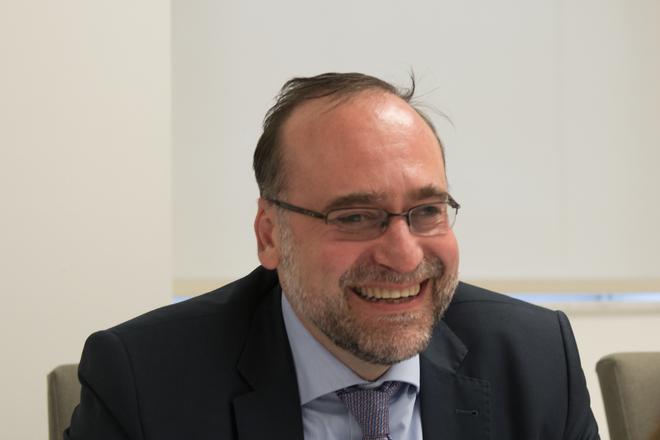When Slovakia takes over the EU Council presidency for the first time in its history, it hopes to be part of building long-term solutions that work on the ground and withstand the test of time, says Peter Javorčík, the country’s permanent representative to the EU. In an e-mail interview with The Slovak Spectator, Javorčík declined to comment on how the ill health of Prime Minister Robert Fico or Foreign Minister Miroslav Lajčák’s run for UN secretary general might affect the presidency, but he shared his views about how the British decision to leave the EU will affect the presidency.
The Slovak Spectator (TSS): Britons in the referendum decided to leave the EU. What does this result mean for the future of the EU and for Slovakia’s presidency? Will Slovakia play any role in the process of UK’s departure from the EU?
Peter Javorčík (PJ): We respect the decision of the UK’s citizens but we have also expressed our regret, strongly convinced that both the UK and the EU would have been better off together.
Now, we need two things – legal certainty and a political vision. The first one means a set of serious negotiations in order to provide answers to various practical questions resulting from this referendum, including future relations between the EU and the UK. The second one – and equally important – means the need for our own internal reflection leading to a better, more understandable Europe. In other words, we need to strengthen the trust of citizens in a common European project because the current trend is not encouraging.
The Slovak Presidency is ready to play an active and responsible role in this process.
TSS: Slovakia is known for its contrarian positions on many of the European hot topics, most recently the refugee quotas. What does this mean for Slovakia’s presidency and its ability to achieve its goals?
PJ: Firstly, let us avoid unfounded simplifications. It is incorrect to single out one policy – namely refugee quotas – and generalise our attitude towards it, saying ‘Slovakia holds contrarian positions on many topics’. Similarly, the presidency cannot be narrowed down to one single area, namely migration, and at the same time, this one single area cannot be narrowed down to one single file, the revision of the Dublin regulation. Overall, I am confident to say that Slovakia is a constructive, credible member of the European Union.
Everyone can be sure that the Slovak Presidency will be an honest broker, a credible and constructive manager, negotiator or mediator.
In the area of the Common European Asylum System, we will have altogether some seven proposals to discuss and nothing is going to be shelved. We believe, however, that we need to have a complex, thorough look at all proposals, and to put basic elements in place first – for instance, asylum procedures or reception conditions. It would be counter-productive to concentrate the entire debate on one single file, the Dublin regulation, which is a divisive issue among Member States.

TSS: How do you perceive the worries that Slovakia might not be able to unite a deeply divided Europe on the migration issue, given its lack of experience with the presidency and its opposition to key parts of the EU’s migration strategy?
PJ: In fact, the EU is less divided than a year ago and a lot of our partners share the view that we need to focus on initiatives which do not cause deep divisions. First and foremost, we want to continue building a unity around EU policies.
There still is a great deal of unfinished business which should be completed in order to return to a proper functioning of the Schengen area by the end of this year. We are set to put a lot of efforts into the smart borders package to modernise Schengen’s external borders.



 Peter Javorčík (source: Jana Liptáková)
Peter Javorčík (source: Jana Liptáková)